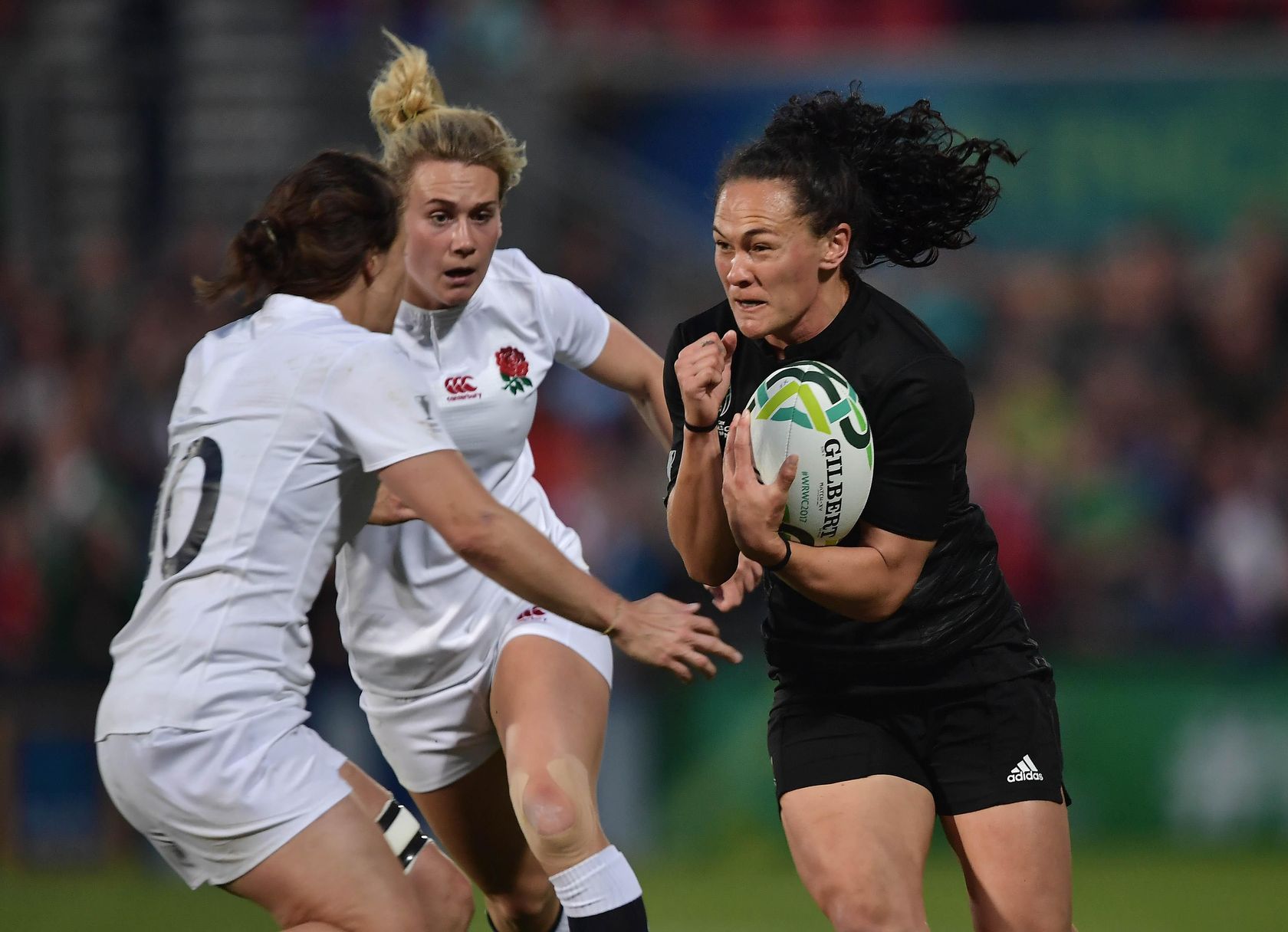It is, according to former Black Ferns captain Melissa Ruscoe, a “love-hate relationship”.
New Zealand have beaten England en route to each of their five Rugby World Cup victories, since beginning that run with a 44-11 semi-final win in Amsterdam in 1998.
The Red Roses are yet to beat the Black Ferns at the global tournament. England have reached each of the past five finals but in four of those – including the first, almost 20 years ago on 25 May 2002 – the team’s path to glory was blocked by New Zealand.
England did taste Rugby World Cup success in 2014, the nation’s second title after 1994, but their rivals had been knocked out in the pool stage.
Book your tickets to Rugby World Cup 2021 >>
Ireland had stunned New Zealand in Paris, but it was technically England that delivered the telling blow to the Black Ferns’ hopes, as they played out a 13-13 draw against Canada that sent both teams into the semi-finals.
“I was, in a way, disappointed because they were the ones that had pipped us to the post in the previous two World Cups,” RWC 2014 winner Danielle Waterman remembered.
England will travel to New Zealand later this year full of confidence as they are on a 23-match winning run, which included two record victories against the Black Ferns. With less than five months to go until Rugby World Cup 2021, playing in 2022, we look at the rivalry that has shaped the women’s tournament.
New Zealand driven to succeed

“We were more driven to do better at the 1998 World Cup because it was the first officially sanctioned World Cup,” former Black Ferns captain and now World Rugby Hall of Fame inductee Farah Palmer recalled.
New Zealand had not attended RWC 1994 in Scotland, where England beat the USA 38-23 in the final to lift their maiden crown, and were determined to make up for lost time.
Victories over Germany, Scotland and Spain set up a last-four meeting with the defending champions at the National Rugby Centre in Amsterdam.
Tries from Vanessa Cootes (2), Annaleah Rush (2), Anna Richards and Kellie Kiwi propelled New Zealand into the final, where the USA were beaten 44-12.
Four years later in Barcelona, England, who had registered their first test victory over New Zealand a year previously, made it back to the final — where their rivals were waiting.
In front of 8,000 fans at Estadi Olímpic de Montjuic, tries from Monique Hirovanaa and Cheryl Waaka gave New Zealand a 19-9 victory and their second successive RWC title.
Get your RWC 2021 Team Pack >>
England believed they were making progress, and the Red Roses would come agonisingly close on the teams’ next RWC meeting.
Trailing 20-10 with seconds of the final remaining, Helen Clayton touched down to give England hope before Shelley Rae stepped up to send a pin-point conversion through the uprights.
England managed to regain possession and were building towards the New Zealand half when the ball slipped loose and Stephanie Mortimer’s pace created the space for Amiria Rule to score the winning try.
“Those are the best games to win, when you know that both teams have given everything,” Palmer said.
“Both teams were just going at each other and really trying to find the weaknesses. When I got up out of the ruck and saw Amiria [Rule] down the sideline there, I just thought, thank goodness because it could have gone the other way.”
Digging deep

Coming so close was scant consolation for England, as Sue Day recalled: “Every four-year cycle was about ‘how are we going to win this World Cup? How are we going to be the best we can be to train to win the World Cup?’
“And I’ve got two World Cup silver medals in a box in the loft somewhere that don’t come out very often.”
England would get another shot at revenge at the Twickenham Stoop in 2010, as both teams yet again navigated their way to the showpiece match.
A passionate crowd of 13,253 packed into the home of Harlequins. But, despite having Anna Richards, Mel Bosman and captain Ruscoe sent to the sin-bin, New Zealand edged to a 13-10 victory.
“We had to dig really deep,” Ruscoe remembered. “We knew we couldn't play on our five-metre line, we had to be at the other end of the field as much as possible.
“And just having the control to keep the ball away from our line, probably the frustration and the pressure built on England.”
Some of that pressure was alleviated in 2014, when England beat Canada 21-9 to claim their second RWC title.
But it was a similar story in Belfast three years later. England had beaten the Black Ferns in New Zealand a little over two months prior to the final at the Kingspan Stadium.
However, a modern classic was effectively settled by prop Toka Natua, whose hat-trick of tries either side of half-time helped New Zealand seal a 41-32 triumph.
"That’s something special,” Black Ferns scrum-half Kendra Cocksedge said of the win.
“I was a part of the 2010 World Cup when we won, also part of 2014 when Ireland beat us and kicked us out. So to get that, we were going over [to Ireland] and that’s what we were coming back with.
“Us older ones that were there in 2014, we had one job and that’s what was going to happen. So, the motivation was really high. To have it back home here now is really cool.”






